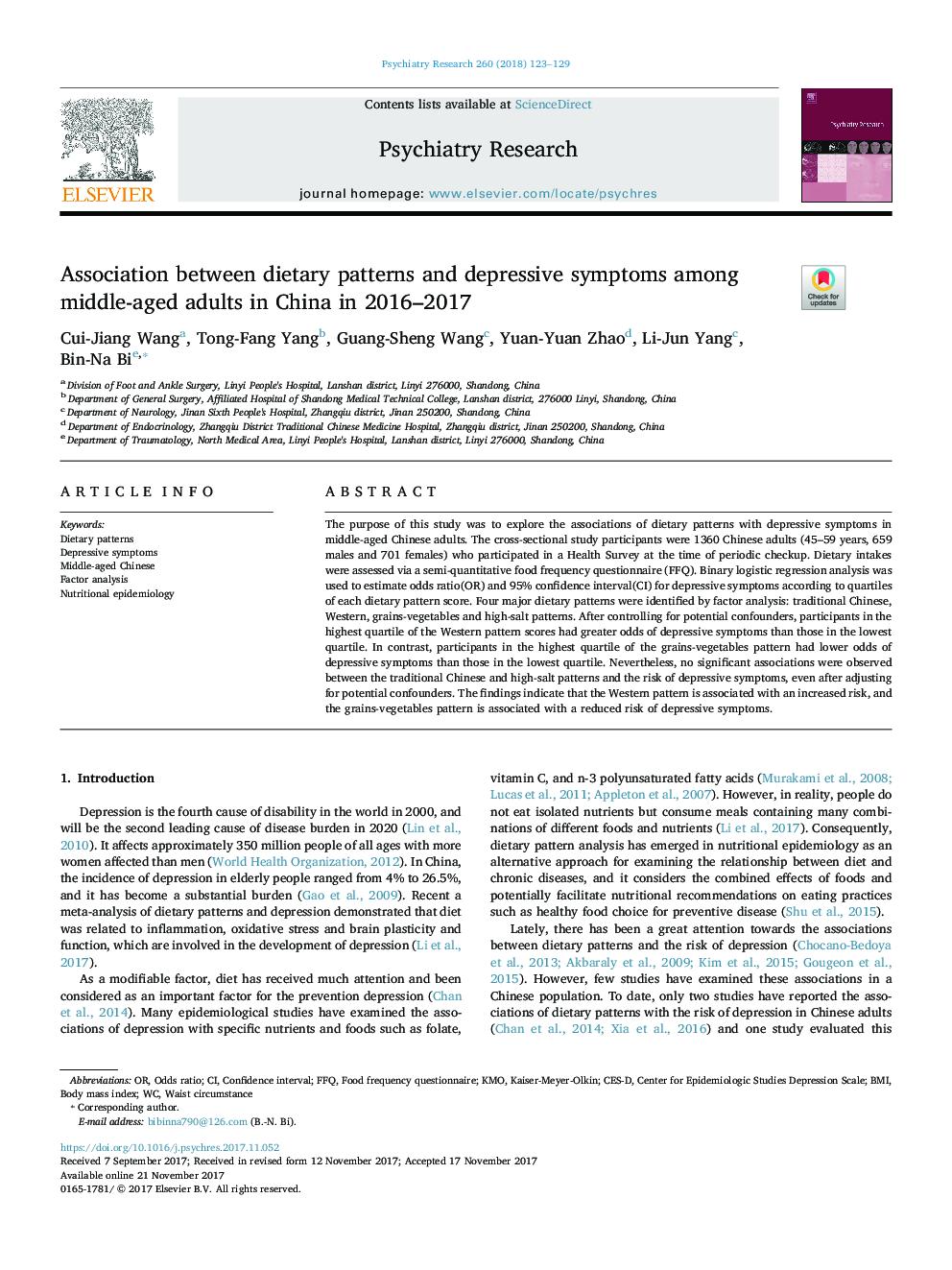| Article ID | Journal | Published Year | Pages | File Type |
|---|---|---|---|---|
| 6811836 | Psychiatry Research | 2018 | 7 Pages |
Abstract
The purpose of this study was to explore the associations of dietary patterns with depressive symptoms in middle-aged Chinese adults. The cross-sectional study participants were 1360 Chinese adults (45-59 years, 659 males and 701 females) who participated in a Health Survey at the time of periodic checkup. Dietary intakes were assessed via a semi-quantitative food frequency questionnaire (FFQ). Binary logistic regression analysis was used to estimate odds ratio(OR) and 95% confidence interval(CI) for depressive symptoms according to quartiles of each dietary pattern score. Four major dietary patterns were identified by factor analysis: traditional Chinese, Western, grains-vegetables and high-salt patterns. After controlling for potential confounders, participants in the highest quartile of the Western pattern scores had greater odds of depressive symptoms than those in the lowest quartile. In contrast, participants in the highest quartile of the grains-vegetables pattern had lower odds of depressive symptoms than those in the lowest quartile. Nevertheless, no significant associations were observed between the traditional Chinese and high-salt patterns and the risk of depressive symptoms, even after adjusting for potential confounders. The findings indicate that the Western pattern is associated with an increased risk, and the grains-vegetables pattern is associated with a reduced risk of depressive symptoms.
Keywords
Related Topics
Life Sciences
Neuroscience
Biological Psychiatry
Authors
Cui-Jiang Wang, Tong-Fang Yang, Guang-Sheng Wang, Yuan-Yuan Zhao, Li-Jun Yang, Bin-Na Bi,
